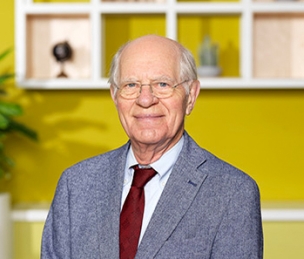Displaying 1 - 10 of 10
-
Levelt, W. J. M. (2019). How Speech Evolved: Some Historical Remarks. Journal of Speech, Language, and Hearing Research, 62(8S), 2926-2931. doi:10.1044/2019_JSLHR-S-CSMC7-19-0017.
Abstract
The evolution of speech and language has been a returning topic in the language sciences since the so-called “cognitive revolution.” -
Levelt, W. J. M. (2019). On empirical methodology, constraints, and hierarchy in artificial grammar learning. Topics in Cognitive Science. doi:10.1111/tops.12441.
Abstract
This paper considers the AGL literature from a psycholinguistic perspective. It first presents a taxonomy of the experimental familiarization test procedures used, which is followed by a consideration of shortcomings and potential improvements of the empirical methodology. It then turns to reconsidering the issue of grammar learning from the point of view of acquiring constraints, instead of the traditional AGL approach in terms of acquiring sets of rewrite rules. This is, in particular, a natural way of handling long‐distance dependences. The final section addresses an underdeveloped issue in the AGL literature, namely how to detect latent hierarchical structure in AGL response patterns. -
Levelt, W. J. M. (1991). Die konnektionistische Mode. Sprache und Kognition, 10(2), 61-72.
-
Levelt, W. J. M. (1991). Lexical access in speech production: Stages versus cascading. In H. Peters, W. Hulstijn, & C. Starkweather (
Eds. ), Speech motor control and stuttering (pp. 3-10). Amsterdam: Excerpta Medica. -
Levelt, W. J. M., Schriefers, H., Vorberg, D., Meyer, A. S., Pechmann, T., & Havinga, J. (1991). Normal and deviant lexical processing: Reply to Dell and O'Seaghdha. Psychological Review, 98(4), 615-618. doi:10.1037/0033-295X.98.4.615.
Abstract
In their comment, Dell and O'Seaghdha (1991) adduced any effect on phonological probes for semantic alternatives to the activation of these probes in the lexical network. We argue that that interpretation is false and, in addition, that the model still cannot account for our data. Furthermore, and different from Dell and O'seaghda, we adduce semantic rebound to the lemma level, where it is so substantial that it should have shown up in our data. Finally, we question the function of feedback in a lexical network (other than eliciting speech errors) and discuss Dell's (1988) notion of a unified production-comprehension system. -
Levelt, W. J. M., Schriefer, H., Vorberg, D., Meyer, A. S., Pechmann, T., & Havinga, J. (1991). The time course of lexical access in speech production: A study of picture naming. Psychological Review, 98(1), 122-142. doi:10.1037/0033-295X.98.1.122.
-
Friederici, A., & Levelt, W. J. M. (1988). Sprache. In K. Immelmann, K. Scherer, C. Vogel, & P. Schmook (
Eds. ), Psychobiologie: Grundlagen des Verhaltens (pp. 648-671). Stuttgart: Fischer. -
Levelt, W. J. M. (1988). Psycholinguistics: An overview. In W. Bright (
Ed. ), International encyclopedia of linguistics: Vol. 3 (pp. 290-294). Oxford: Oxford University press. -
Levelt, W. J. M. (1988). Onder sociale wetenschappen. Mededelingen van de Afdeling Letterkunde, 51(2), 41-55.
-
Norman, D. A., & Levelt, W. J. M. (1988). Life at the center. In W. Hirst (
Ed. ), The making of cognitive science: essays in honor of George A. Miller (pp. 100-109). Cambridge University Press.

Share this page